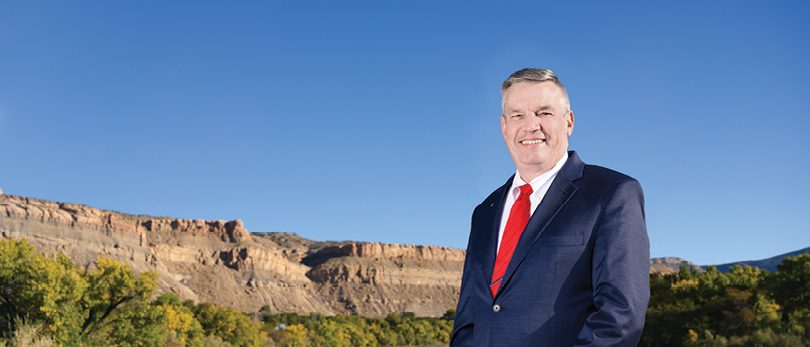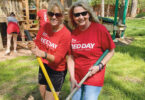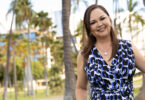2019 President Michael Burkhard plans to strengthen the Council by reminding its members what they do best
By Matt Alderton
In business, every road eventually comes to a fork. When it does, the question isn’t merely, “Left or right?” Often it’s, “Live or die?” For residential real estate, the time to choose is now.
So argues Michael Burkhard. He knows because he’s seen it before. Prior to becoming a REALTOR® in 2002, Burkhard was a serial entrepreneur who owned several businesses that reached their respective forks, including video stores at the height of Blockbuster and a professional photo lab in the Kodak era. Although he exited each industry at the opportune time, many of his peers weren’t so lucky. Faced with new threats, they chose to resist change when the smart move was responding to it. The result: extinction.
Burkhard—sales manager at Bray Real Estate in Grand Junction, Colorado—learned an important lesson from those early endeavors: The best way to avoid annihilation is adaptation. Continuing education through the Council has therefore been a cornerstone of his real estate career, highlights of which include obtaining his CRS Designation in 2006, becoming CRS of the Year in 2010 and serving as president of the Council’s Colorado state group in 2011. As the Council’s 2019 president, Burkhard is ideally positioned to help the Council foresee and prepare for the changes barreling toward its members. To ensure they rise with the shifting tides, he plans to spend his term evangelizing the one asset that he believes will keep CRSs relevant: their relationships.
How did you get into real estate?
I originally got licensed to sell real estate in 1982. It was right when we had a huge market crash in our local area because of oil shale. I tried for a couple of years to survive in real estate, but it didn’t go well. So I went and did other things. I opened up a photo lab. When video stores came out, I owned video stores. I did a bunch of things over the years, but I always had real estate in my blood. In 1995, I ended up at Winter Park Resort, where I helped build a motel. I did that until 2002, when I came back to Grand Junction and reinstated my real estate license.
You said real estate was in your blood. What aspect of real estate appealed to you?
I never aspired to be a REALTOR®. I just really liked helping people. Everything I’ve always done has been people-oriented. I’m a good negotiator and salesperson because I like making sure everybody gets what they need. That’s why people in my local real estate community call me the “Deal Doctor.” I know how to put broken deals back together when people are unhappy because I like being helpful.
What made you join the Council and get your CRS Designation?
I got highly involved in the Council in 2002 and got my CRS Designation in 2006. The education is what sucked me into it because the more I learned, the better I seemed to be as an agent. I’m the kind of person who wants to know everything that’s going on in the market. When you get your CRS Designation, you’re in the know, and that allows you to help people.
Shortly after I got my CRS Designation, the market crashed. Because I had my CRS Designation I knew I had to roll with the punches and change directions. So I made sure I understood short sales and foreclosures and all the things that were happening in the market. That allowed me to help other people so they didn’t have to go through the hard time of losing their home. I was able to coach them and counsel them. I helped clients get out of their houses when they lost them to foreclosure, and many of those same clients have now bought new houses. They all appreciate what I did for them and remember that I was there to help. That’s because of my CRS Designation.
You obviously enjoy helping others. How will you help fellow CRSs during your term as Council president?
I’m hoping we can bring back connecting, because I think that’s the biggest advantage that an organization our size has. The Council has an office in Chicago, and members and volunteers all over the country who are trying to help make the organization stronger. Sometimes we get lost trying to fit all those pieces together. What I really want to do in the next year is make sure that volunteers, members and staff in Chicago all feel connected to each other.
How will you facilitate those connections?
I think we need a solid method of communication. It’s hard when you send out 500 emails and three of them get opened. In this day and age, should we be texting instead? We’ve got to pay attention to feedback from our members in terms of how we can best communicate with them so they understand what we’re doing and how we’re trying to help them. Also, I think we need to do a better job recognizing and rewarding our volunteers and making sure they know they’re loved. There’s a quote I like that goes something like, “The single raindrop never feels responsible for the flood, yet it is.” It’s so important that each one of us individually understands how we make a difference for the whole.
In your opinion, what’s the best way to recognize and reward volunteers?
We can make shiny brass plaques, but the best recognition to me is just telling people, “Thank you.” I’m not at all opposed to calling 50 people and thanking each one individually. I’ll do that, because when somebody does that for me it really touches my heart. That’s what we’re missing in our society; I think we need more of that.
Real estate is at a fork in the road. What did you learn from your previous businesses about remaining relevant in the face of change?
I owned a photo lab in the early ’90s. When digital cameras started coming out, I saw the writing on the wall. Things were going to change dramatically. I’m seeing something similar in real estate right now. There are disruptors coming that threaten our way of doing business, and that is something we have to pay really close attention to. I think the biggest thing we can do in response is being personally connected to our customers.
It doesn’t matter whether you’re working in a bakery or selling real estate: The world revolves around relationships. Because there’s so much information on the internet, customers’ needs have changed. What they’re looking for from real estate professionals is somebody who’s present, who knows what’s going on and who can give them great guidance. It’s not enough to be transactional. You have to be an advocate for your clients and make sure they know you care about them. If you can build those relationships—if you’re sincere and honest and do the absolute best you can—your business will always move in the right direction. 
Getting Personal With the President
Family: “My mom and dad are both still alive. My dad was a game warden for Colorado Parks and Wildlife, so I grew up in the outdoors on a farm. There are five of us kids, and we’re all still around harassing each other unmercifully. My wife passed away last year. I have two kids. Neither of them has children, but I have lots of grand-dogs. I’ve also got a dog named Bear and 20 free-range chickens in my backyard.”
Fun: “I have a big yard full of flowers, so I’m an avid gardener. I ride four-wheelers. I have a Jeep I like to drive. I do a lot of fishing, hiking and hunting. I’m a Certified Master Photographer, so I’ve always got a camera in my hand. I’m an avid baker, too. When I first started, I had a following at my open houses because of my baking.”
Nature: “Being an outdoorsman has taught me: You get back what you give. I never go into a campground, for instance, without cleaning it up because I’m a firm believer that you reap what you sow. In nature, and in everything else.”
Education: “I wasn’t much of a school person, so high school was it for me. My education since then has been the school of hard knocks. I’ve taken every class I could along the way to become what I need to be.”
There are many ways to connect with the Council. Start by joining our We Are CRS Facebook group at Facebook.com/groups/WeAreCRS. Ask questions, get and give referrals and network with like-minded agents.








